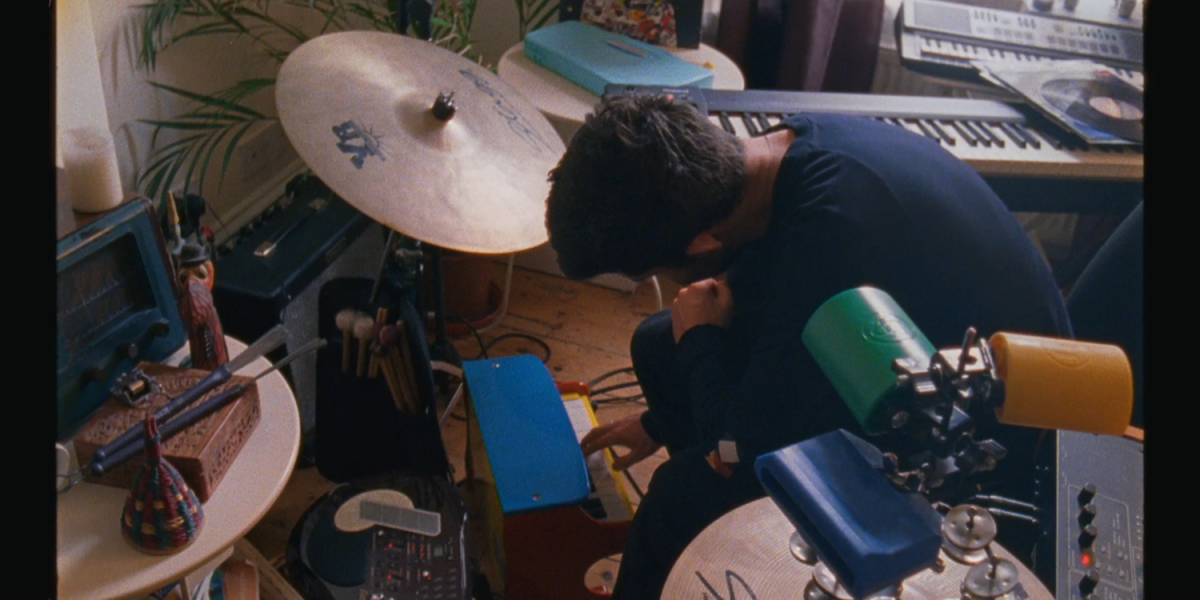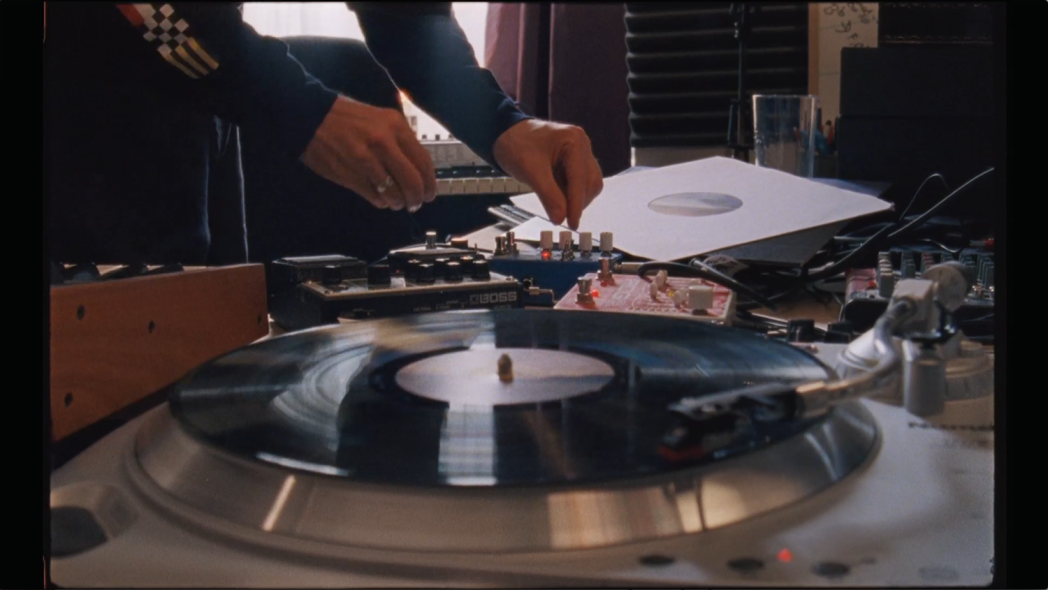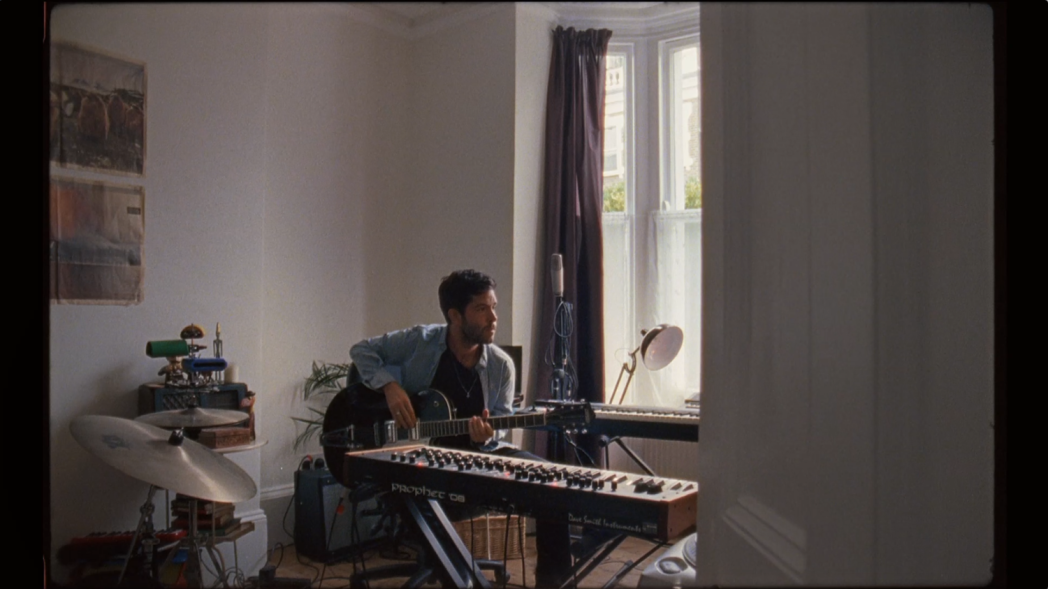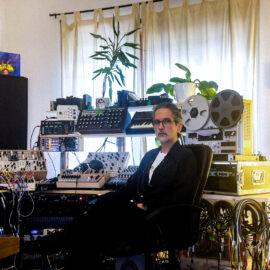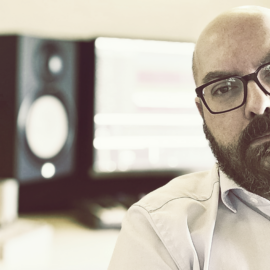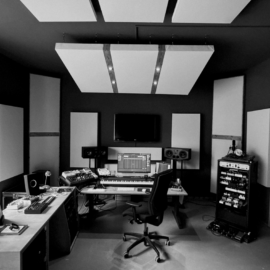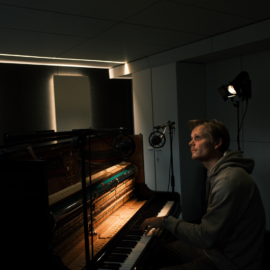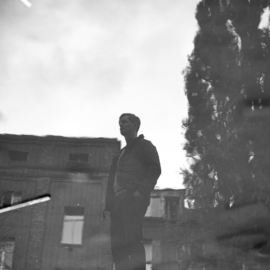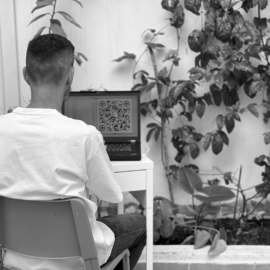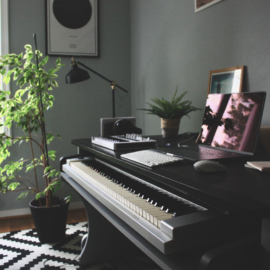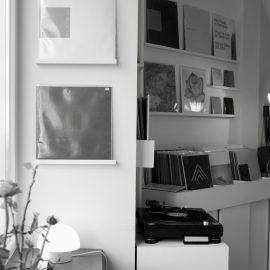Let’s start at the very beginning. Can you tell us how you got involved in composing, and what was your very first piece of gear?
I started composing when I was 15. I was making Hip Hop instrumentals – finding samples from vinyl I bought in Charity shops and trying to emulate the likes of J Dilla, MF Doom, Madlib… Before that, I was a drummer and played in a Jazz band. I listened to a lot of Jazz in my early teens, which led me to sampling and hip hop… and so on. I started making music around the time of Morcheeba, AiM, Nightmares on Wax… the golden age of Trip Hop. All of those records still influence my sound and process a lot to this day. AiM’s ‘Cold Water Music’ was particularly influential, I think. My first piece of gear was a Tascam Portastudio 244 track tape recorder. I sold it on eBay about ten years ago, and now I regret it, as they seem to be in fashion again!
How many different studio iterations have you gone through, and what does your final setup look like right now?
My setup is simple. Essentially, it’s my laptop running Logic X, a keyboard, a turntable (and lots of old Vinyl), a box of random percussion instruments, and a few guitar pedals (the Hologram Microcosm is my favourite). My studio has always been fairly simple out of choice. I don’t need a lot of gear, and really, I don’t want a lot of gear. I find that too much choice and admin leads to less creativity. I love the idea of analogue synths, but in reality, I find that I need the creative process to be instantaneous in order to capture ideas as they come in. I think Brian Eno likened the creative process to surfing a wave – you wait around for a while, and then you’ve got to galvanise and catch it when it comes and stay in that zone as long as you can. If I’m interrupted by spending time unplugging cables, tuning synths, or patching synths into my computer… it all distracts from that.
Tell us about your favourite piece of hardware.
Having said all of this, I recently bought a new synth called the Terra by SOMA. I am having a lot of fun with it right now. It’s so intuitive to play, and I find it makes it super easy for me to come up with new ideas quickly.
Can you please share some aspects of sound design in your work?
I use a lot of sound design without really intending to, mainly in the warping of samples. Slowing down harps, putting loads of reverb on a vibraphone note etc. I like to make things sound older than they actually are. For example, I will side chain vinyl crackle to a synth I’ve made in the computer, and it will trigger when the notes play. So, it gives the illusion of age. I’ll also use various techniques to make MIDI instruments sound like the real thing. Generally, though, I prefer not to go too deep into sound design and try to stay away from too many effects and plug-ins. I find that the thing that makes music date is the effects used, the processing. And so I aim to have everything as ‘natural’ sounding as possible in the hope that it will stand the test of time. When I listen back to my old work, the songs that date for me are the ones where I have used lots of pitch shifting on vocals or a synth that sounds very ‘of the time’. So I would prefer to use something like a Rhodes, which is a classic sound and will never sound old, in my opinion.
Any particular new techniques that you tried out for your new album?
The big difference with this album is that I used a lot of strings. I listened to a lot of classical music and neo-classical throughout COVID and the lockdowns, and I think this really influenced the album. To me, the strings are the only other instrument capable of recreating the range and emotion of the human voice.
What is the most important environmental aspect of your current workspace, and what would be a particular element that you would improve on?
The most important aspect has always been natural light. Over the years, I have rented various studio spaces, but they have never worked for me. They are usually in a block of studios which are all sound proofed, with no air, and no windows. They can feel quite sterile. In the past, I have also had the privilege of using professional studios to work on certain things, and again, I have found it stifling. There’s something about a massive mixing desk, an engineer sitting there, and loads of shiny, expensive pre-amps that makes the imposter syndrome kick in and puts too much pressure on me. I much prefer to work at home. I’m able to work on music for a few hours, then go do some washing, go for a walk, come back, play around with the song a bit more, and let it breathe and evolve naturally. Also, some days, I just don’t feel creative. And if you hire a studio, you have to turn up every day, and you end up forcing it. Sometimes, that can be a good thing, but at the moment, I’m at peace with the fact that some days it just doesn’t happen, and that’s ok. So rather than force it, I’ll just do something else. And then I usually get inspired through doing that.
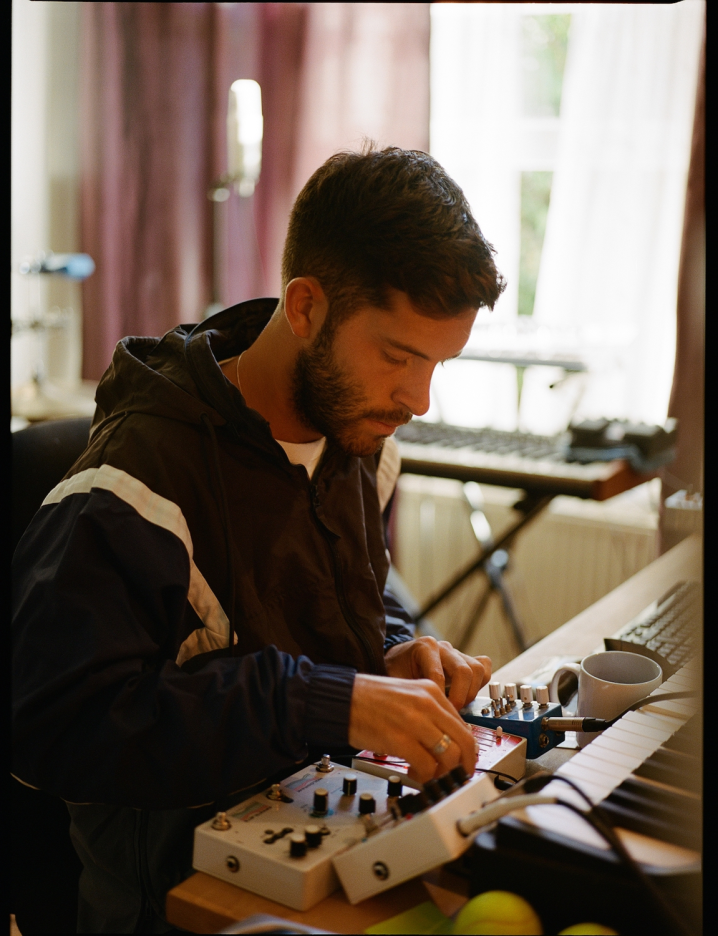
After the piece is complete, how do you audition the results? What are your reactions to hearing your music in a different context, setting, or a sound system?
The thing I find hardest is knowing when to stop. I keep tweaking and adding elements and mixing endlessly. I know that it’s not productive. Usually I will test a mix out whilst driving in the car, and also test the music at shows as I’m making it. It’s useful listening to it in the car because I’m moving and I’m in a different environment. And when you take the music out of the studio, you hear things differently. Likewise, at shows, I find it very useful to work on something all week and then test it at the weekend and see the crowd’s reaction – this usually gives you an idea of whether the song has substance or not. I’ll usually keep an eye on the crowd for various points in the song – does the drop work? Is the build-up too long? Do the drums sound good on a big sound system?
Do you ever procrastinate? If so, what do you usually find yourself doing during those times?
All the time! I find myself listening to things on a loop and tweaking endlessly and unnecessarily. I have to be honest with myself – most people don’t care if the hi-hat is 2db louder or EQ’ed correctly. I am trying to train myself to identify when I’m having these moments and spend them doing something useful instead. I’ve found that there are other ways to be creative that don’t necessarily involve actually creating – for example, actively listening to music (sometimes I’ll spend a few hours just listening to other records and making a few notes on what I like about them) and that then usually informs my own production and songwriting.
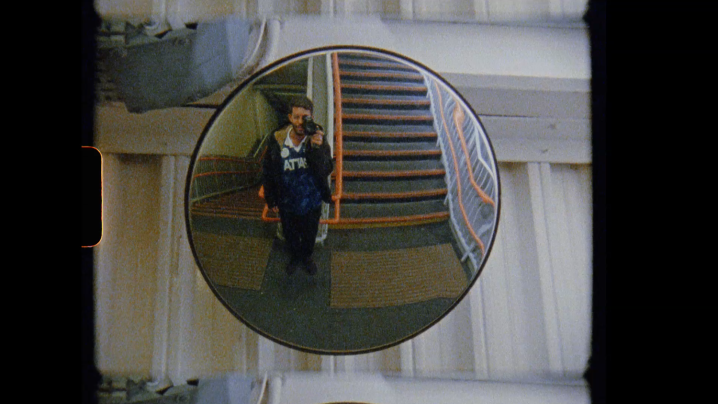
What gets you inspired?
Life – in all its various forms, shapes and sizes!
